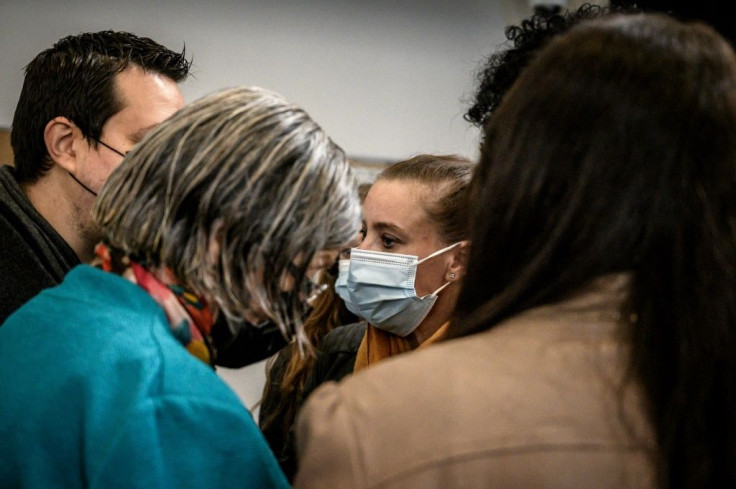Expert Says Omicron Variant May Be A 'Blessing': 'Get Out Of Pandemic Card'
KEY POINTS
- A leading epidemiologist says the Omicron variant could 'displace' Delta
- He warns the next variant may be more severe than the Delta variant
- A case of the Omicron variant has been detected in the U.S.
A leading epidemiologist Thursday said the Omicron variant, first discovered in South Africa last month, could be the key to the end of the COVID-19 pandemic.
During an interview with an Australian morning show, Sunrise, Prof. Tony Blakely said the new variant could “displace” the highly infectious Delta variant. He noted that Omicron is more transmissible than Delta but is a less severe strain of COVID-19.
“This one should be more mild, but we don’t know exactly how much more mild it is, so that means that the hospitalization rate should be less severe,” Blakely told Sunrise. “This might be a blessing if it displaces Delta. It might become our get out of the pandemic card.”
“It might become our get out of the pandemic card"
— Sunrise (@sunriseon7) December 1, 2021
Epidemiologist @TonyBlakely_PI says Omicron, which may be more infectious but less severe than Delta, could be the "blessing" experts have been waiting for. pic.twitter.com/goYXlOObcV
Initial reports from South Africa indicate that people who were infected with COVID-19 caused by the Omicron variant only showed mild symptoms, including extreme fatigue, body aches and a “scratchy throat.” Health experts have yet to receive reports of patients losing their sense of taste or smell.
However, health experts, including Prof. Blakely, stressed that research into the Omicron variant and its effects is still in the early stages. Blakely also added that while Omicron appears to be less dangerous than the Delta, the next variant may become more severe.
Blakely’s interview comes after health officials Wednesday confirmed the first case of the Omicron variant in the United States in an individual who traveled from South Africa on Nov. 22 and was diagnosed with COVID-19 on Nov. 29.
Speaking at a White House news briefing, Dr. Anthony Fauci — the nation’s top infectious disease expert — said the individual was only experiencing “mild symptoms.” He also noted that the person had been fully vaccinated against COVID-19, but said he was not aware whether the individual had already been given a booster dose.
The person is now self-quarantining. Close contacts have also been tested, all of which came out negative for COVID-19, according to CNN.
The case was confirmed through genomic sequencing conducted by researchers at the University of California at San Francisco. The Omicron variant was identified in less than 30 hours from the time the health officials collected the samples.
The World Health Organization has designated the Omicron variant as a “variant of concern,” noting that it poses a “very high” global risk.

© Copyright IBTimes 2024. All rights reserved.






















